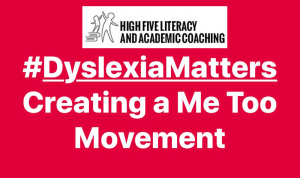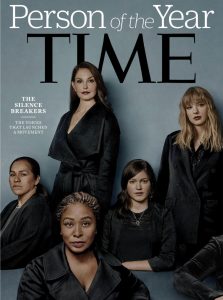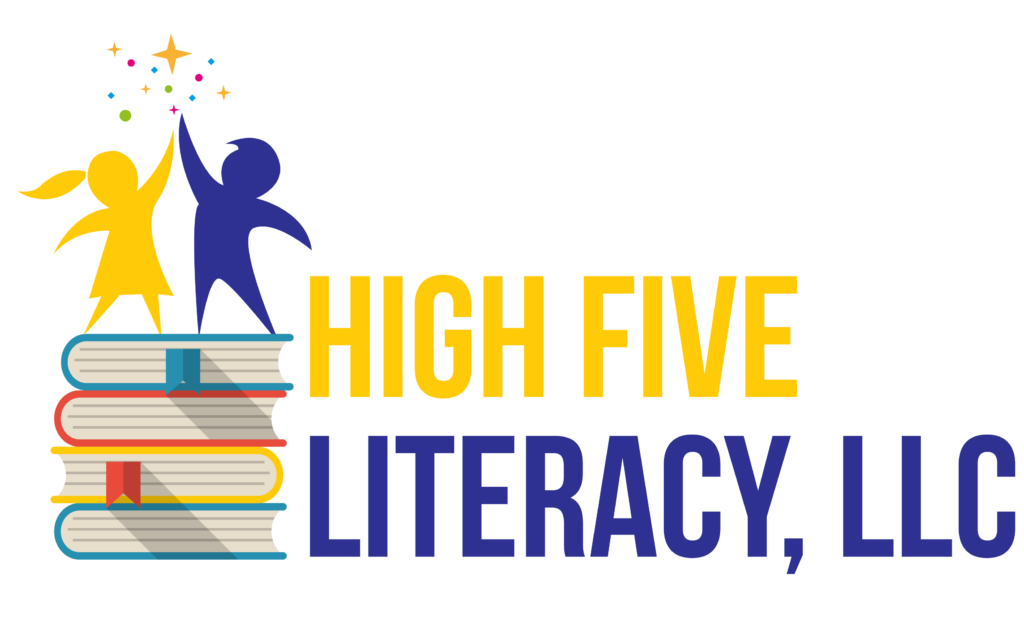 How did a movement like #MeToo grow into a household name? How did the Me Too advocates move people from complacency to solidarity for their cause? Groups like Decoding Dyslexia should pay close attention to how this grassroots movement took shape because there are lessons to learn if we want to spur action instead of just more talk. Dyslexia Awareness Month needs to move beyond #SayDyslexia. We need to move beyond the “one in five.” If we want the message to resonate with the decision makers in education, we need to connect with the idea and advocate that #Change is better for everyone. Dyslexia just won’t matter until there is a reason to make it matter to a wider audience.
How did a movement like #MeToo grow into a household name? How did the Me Too advocates move people from complacency to solidarity for their cause? Groups like Decoding Dyslexia should pay close attention to how this grassroots movement took shape because there are lessons to learn if we want to spur action instead of just more talk. Dyslexia Awareness Month needs to move beyond #SayDyslexia. We need to move beyond the “one in five.” If we want the message to resonate with the decision makers in education, we need to connect with the idea and advocate that #Change is better for everyone. Dyslexia just won’t matter until there is a reason to make it matter to a wider audience.
Although a woman named Tarana Burke coined the term “Me Too,” it wasn’t until actress Alyssa Milano adopted the phrase that it went viral on Twitter. “If you’ve been sexually harassed or assaulted,” she tweeted, “write ‘me too’ as a reply to this tweet.” It was so powerful it quickly spread to Facebook and Instagram, giving people a sense of the magnitude of the problem. Recently, Burke tweeted, “It made my heart swell to see women using this idea, one that we call empowerment through empathy #metoo.” These tweets highlight what can be accomplished when lots of people identify and empathize with a feeling. It moves people from the sensation that they’re watching a movie involving someone else into a feeling that “I” am not alone, and “I” don’t have to be ashamed.
Decoding Dyslexia must build its influence by connecting with others outside the dyslexia community, to let the world know that the instructional malpractice taking place in our schools affects everyone’s children, not just those struggling with dyslexia. As long as dyslexia is viewed as “their problem,” the movement won’t have the same impact as social influencers like Me Too. Ashley Judd said at the Oscars ceremony, “The changes we’re witnessing are being driven by the powerful sound of new voices, of different voices, of our voices joining together in a mighty chorus that is finally saying, ‘time’s up’.” Yes!! Did those words not make you feel like you were that new voice? Did you not want to join this beautiful group, most of whom were dressed for solidarity in black gowns? Did you not want to share your own experience? The world views the Me Too Times Up movement as courageous and righteous. Well, Decoding Dyslexia’s movement is also courageous and righteous, and it needs to matter to everyone.
At the Golden Globes, Oprah Winfrey said, “…it’s not just a story affecting the entertainment industry. It’s one that transcends any culture, geography, race, religion, politics or workplace. “Oprah appealed to ALL the people watching. Decoding Dyslexia should too. When over 60% of American children are not reading at grade level, it impacts everyone. They are not all dyslexic.
Probably the most powerful message was given by the 140 survivors of the USA gymnastics team against their doctor, Larry Nassar. “We must start caring about children’s safety more than we care about adults’ reputations,” gymnast Sarah Klein said. Aly Raisman, the brave, well-known face who initiated the complaint,added, “For too long we were ignored. It could have been avoided. All we needed was one adult to have the integrity to stand between us and Larry Nassar.” These girls pulled at the heartstrings of every parent watching. How can adults stand by and watch children get hurt? How can the adults allow this to happen? “It could have been my child,” was likely on the minds of everyone watching. In no way do I mean to equate what the girls went through with the mission of Decoding Dyslexia; however, Decoding Dyslexia needs to ask how America can continue to permit the damage being inflicted on children in schools by the continued use of faulty, if not discredited, literacy strategies.
As noted on the Me Too website, that movement’s vision statement clearly says, “Our goal is to reframe the global conversation…to speak to the needs of a broader spectrum of survivors… We want perpetrators to be held accountable and we want strategies implemented to sustain long term, systemic change.” This should be the goal of Decoding Dyslexia – systemic change for all children! That certainly was my mission when I wrote my book, Failing Students or Failing Schools? A Parent’s Guide to Reading Instruction and Intervention, and before that, Reading Intervention Behind School Walls: Why Your Child Continues to Struggle. My intent in writing the books was not only to provide practical advice to parents of struggling readers, but to speak to the “needs of a broader spectrum,” and to hold the “perpetrators” accountable for years of inadequate reading instruction for all children. It is simply unconscionable that generations of teachers continue to teach strategies that actually can disable children. Structured Literacy proponent and Distinguished Professor Anne Castles said, “What we know is the way you assist children with dyslexia is the same way you would teach reading skills to kids without dyslexia: you just need to do it more intensively and probably for a bit longer.” I sincerely hope my books become an impetus for sustainable, systemic change in education. I hope that Decoding Dyslexia chapters will use them to appeal to decision makers at the state and federal levels, community leaders, district administrators, teachers, and all parents of emergent and struggling readers. Only by enlarging the pool of concerned parents can Decoding Dyslexia hope to accomplish its goal.
Faith Borkowsky is the founder of High Five Literacy and Academic Coaching with over thirty years of experience as a classroom teacher, reading/learning specialist, regional literacy coach, administrator, and tutor. Ms. Borkowsky is Orton-Gillingham trained and is a Wilson Certified Dyslexia Practitioner listed on the International Dyslexia Association’s Provider Directory. She provides professional development for teachers and school districts, as well as parent workshops, presentations, and private consultations.

8 Comments. Leave new
What about a support campaign of “Phonics for all” that could easily be re-tweeted.
What about “Phonics for all”?
That could easily be re-tweeted and would expose that guessing is the current strategy which is just ridiculous.
YES!!!!
I’m amazed, I have to admit. Seldom do I encounter a blog that’s equally educative and engaging, and let me tell you, you have hit the nail on the head.
The problem is something which too few folks are speaking intelligently
about. I am very happy I stumbled across this during my hunt for something relating to this. http://www.mbet88vn.com
Thanks for sharing your thoughts. I really appreciate your efforts and I will be waiting for
your next post thanks once again. http://Www.Taxibestellung24.de/php/redirect.php?url=http://www.mbet88vn.com
Brilliant as always Faith!
Thanks for the blog, are focusing on Higher Ed in a big way. We have meetings and dialog with colleges of education trying to push the needle towards the science of reading. Decoding members are on Literacy Advisory Committees like National Center for Improving Literacy. Many develop professional development and take an active roll presenting at conferences, the bravest stepping into the ILA circles trying to lift the Balanced Literacy Whole Language fog one ah ha moment at a time. Even more than the legislative push we must push colleges of education to change teacher prep so that all teachers understand the science of reading. It’s exhausting work, meeting with school board associations and state superintendent and curriculum directors only.to be met by the Balanced Literacy push back. Trying to get the national PTA on board only to be met with push back from other disability groups. Advocacy is hard work with lots of phylisophical barriers that make reaching outside of the dyslexia space daunting, it will take a groundswell if people who refuse to give up! so glad you brought up the need to elevate Literacy and reach well beyond legislation because even the best legislation will not save our kids, that can only be done by well informed parents and well educated teachers. Teacher training is one of our top priorities! Thanks for all you do Faith to raise this issue and shine a spotlight on the hard work ahead!
Great job! Great ideas and quite brilliant!
http://www.language-school.io